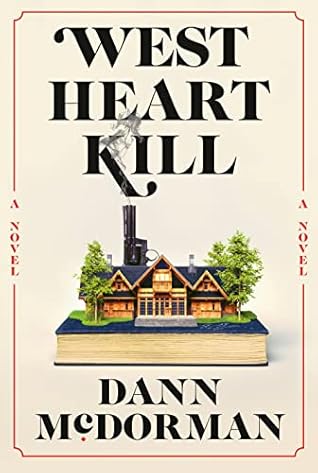More on this book
Community
Kindle Notes & Highlights
You can perceive the contours of the plot ahead, anticipate its false clues and blind alleys, the ways in which this writer will try to conceal the truth in plain sight, like a purloined letter on a mantelpiece; you just hope that the rules of the form are followed, because a mystery that cheats is the worst kind of fraud.
нєνєℓ ¢ανα and 4 other people liked this
But in the end, you think, isn’t the real gift of the mystery novel the premonition usually accessible only to mystics and fanatics, the belief that the world is infused with an inner fire of meaning? Who knows what mortal secret links the aging spinster and the cracked mirror in the attic?
Mike and 2 other people liked this
you think, as you read the passage that follows, of how all novelistic descriptions are essentially exercises in voyeurism and fantasy, especially when, as here, the words evoke the tropes of what academics call the male gaze: tanned thighs, ripped jean shorts, star-spangled red-white-and-blue-bikini-topped breasts, blond shag framing cheeks dotted with summer freckles…descriptions that, you’ve always suspected, reveal more about the writers than the characters they’ve invented.
Niam Fingleton and 3 other people liked this
“I am three months shy of my forty-sixth birthday,” says Susan Burr. “That puts you and me on different planets. Eisenhower was my first vote for president. Kennedy, poor Kennedy, was my second. I haven’t voted since. By the time the Pill came, I was already married. The sixties were what happened to other people. The dreams of a bright new future were what you read about in magazines.
Eliana Vanessa and 4 other people liked this
The monologue continues in this new claustrophobic perspective, the “I” of the first-person protagonist, a point of view you have viewed with suspicion ever since your first innocent reading of Agatha Christie’s The Murder of Roger Ackroyd. In general, you find it to be a technique of frustration. You are inside this detective’s head, but parts of his mind are “walled off,” so to speak, including the parts with information you would dearly like to know: Who hired him? How did they find him? How did they know about James Blake? Why West Heart?
There is, you think, a desperation here, women trapped by age and class into roles they never wanted and now don’t know how to escape, stuck in amber as the world beyond West Heart evolves. It feels dangerous…
I can't get over how much this cheats. Like just telling the reader exactly how to feel is so stupid
reflecting on this new gambit by the author, shifting to the “we” of the first-person plural, a form you’ve seldom encountered in murder mysteries, and for good reason, since the “we” effectively obscures the “who”—which, you realize, might be the reason to tack in this direction now, when the “who” moves to the heart of the story, a ploy allowing the murderer’s individual identity to be concealed in the “we” like a leaf hidden in a forest, or a body on a battlefield.
Everything else? Like what? A: I don’t know. Life. Aging. Money. Marriage. Politics. The economy.
you eagerly sought out the reassurances of the genre: a plot that leaves you guessing until the very end, a satisfying twist that you’ll never see coming, a climax to which only certain adjectives can be applied, depending on the aims of the writer and the whims of the critic—exciting, ingenious, baffling, disappointing…
“You call yourself a detective, and maybe you are, down in the city,” she said. “But up here, you’re nothing. Just some stranger who’s been drinking our wine and sleeping with our wives and daughters.”
It’s a melodrama, is what it is. A cheap theatrical twist, at my expense.
This murder mystery, like all murder mysteries, ends with what readers understand to be its dénouement, the revelation, or refusal of revelation, in which the problems are resolved, or not—for in truth, there are neither rules nor betrayals for this kind of story. All we have, you and I, are these guilty memories of bloody crimes in which we are both complicit; for every writer is a murderer, and every reader a sleuth.


